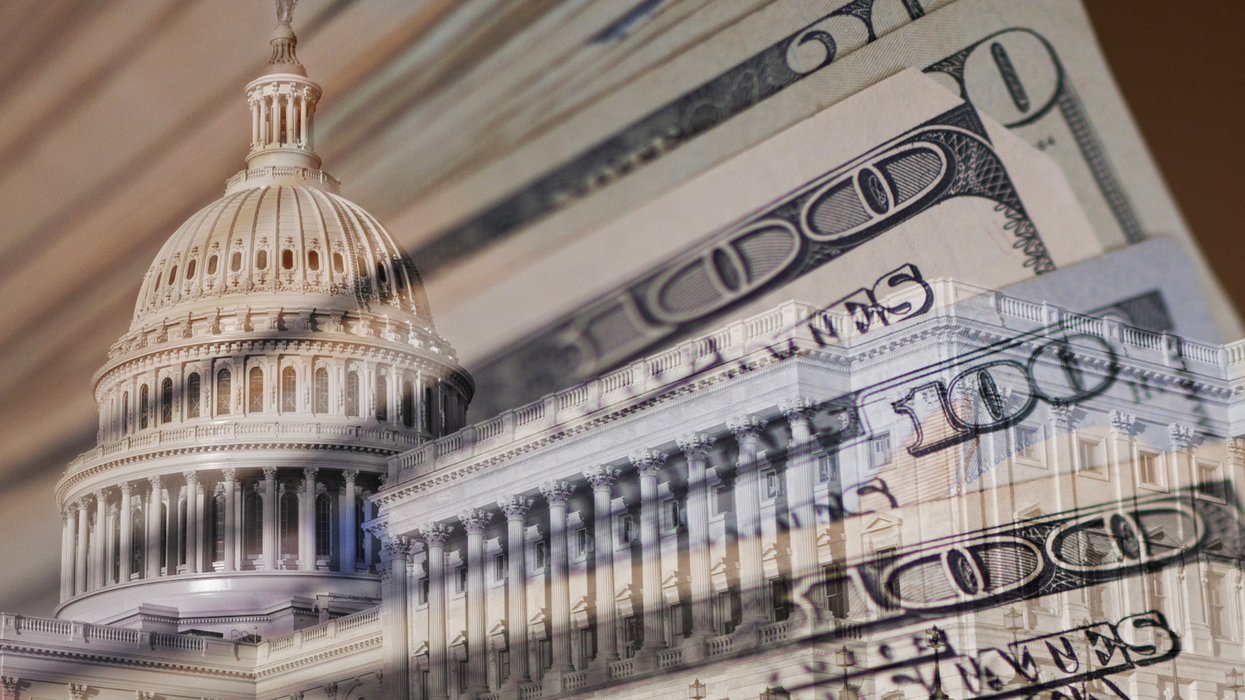Pharmaceutical and health products companies continued to dominate the lobbying space in the second quarter of 2025, spending $105.4 million to influence public policy. That industry has spent more on lobbying than any other, during every quarter but one, since 2010, according to an OpenSecrets analysis of disclosure reports.
That total was down from the industry’s first-quarter total ($121.4 million) but still 38 percent more than the second biggest spender, the electronics industry.
Despite spending falling from the Q1 high, such lobbying totals far outpaced spending from any year prior — the drastic increase coinciding with President Donald Trump’s second term, with spending rising approximately $30 million from Q4 of 2024 to Q1 of 2025.
The pharmaceutical industry spent $22 million more in the first half of 2025 ($226.8 million) than it spent in the same period of the prior year, as the Trump administration and Republican-led Congress pushed through the One Big Beautiful Bill Act, which will have a major impact on pharmaceutical companies.
Other industries that anticipate financial implication from Trump’s policies, such as education, health services and the environment, have upped their expenditures dramatically this year. For example, renewable energy lobbying jumped to $21.7 million in the second quarter of 2025 from $16.2 million Q2 of 2024 and $19.1 million in the first quarter of this year.
By the end of the year companies dealing with defense, federal appropriations, homeland security, Medicare and Medicaid, and taxes may spend record amounts on lobbying, with Q1 and Q2 numbers from this year already climbing past the 2024 totals. Each of those issue areas was affected by the OBBA, which poured billions of dollars into immigration control, made significant changes to health-related services like Medicaid, cut funding for green initiatives and extended tax cuts.
Other highlights
Top lobbying firms: Ballard Partners rose up the ranks to become the top lobbying firm of the second quarter, raking in $20 million. The firm, which is led by a top Trump fundraiser, earned $13.9 million in Q1 to lobby on mainly trade, government and health issues — jumping from the firm’s $4.3 million in Q1 of 2024. Both White House Chief of Staff Susie Wiles and Attorney General Pam Bondi worked for Ballard before joining the administration, although that relationship hit some speed bumps earlier this year.
The previous quarter’s top firm — Brownstein, Hyatt — remains among the most active, earning $18.5 million for lobbying in Q2.
Top clients: The U.S. Chamber of Commerce spent the most on lobbying in Q2, at $19.8 million, up just $10,000 from the quarter prior. The National Association of Realtors spent the second highest amount on lobbying, funneling $16.2 million into legislation affecting housing affordability, disaster relief programs and other issues.
Biggest issue: The primary issue addressed in Q2 of 2025 was the federal budget and appropriations, which saw 4,396 organizations deploying lobbyists on the issue. In comparison, throughout all quarters in 2024, federal budget and appropriations saw 4,526 clients. The second largest issue in the second quarter — taxes — involved 2,118 clients, less than half the number working the spending issue.
Biggest legislation: The One Big Beautiful Bill Act, signed into law by Trump on July 4, precipitated a windfall of lobbying spending, both for and against the legislation’s passage. The Trump administration’s sweeping, almost-1,000-page bill was, by far, the most actively lobbied legislation of the quarter with 2,145 clients working the legislation. Blue Cross/Blue Shield was the most active organization, followed by the American Hospital Association.
The OBBBA added more than $150 billion to military spending and approximately $70 billion towards border wall construction, immigration detention centers, Immigration and Custom Enforcement hiring initiatives and technologies to monitor immigration. Another $75 billion was allocated to support ICE deportation programs. It will add trillions of dollars to the debt, despite cuts to Medicaid, Medicare, SNAP and environmental programs.
Biggest increases: The real estate industry increased its lobbying spending the most in the second quarter, in terms of raw dollars. It spent $34.1 million on lobbying in April-June, up $6 million from the first three months.
As a percentage of spending, the biggest increase came among organizations trying to influence abortion policy, with spending jumping 186 percent in the second quarter, to $827,000. Lobbying on abortion issues shot up to $702,000 after Trump won re-election in 2024.
UnitedHealth Group increased its lobbying activity to $3.7 million in Q2, up from $1.5 million in Q2 of 2024. America’s Health Insurance Plans also grew its lobbying expenditures from $2.4 million to $4.1 million in the same period.
The American Clean Power Association spent $630,000 on lobbying in Q2 of 2024 with such expenditures remaining stable until last quarter, when they jumped to $3.8 million. Environmental groups such as the Nature Conservancy bumped up their lobbying efforts from $840,000 in Q2 of 2024 to $2.3 million this quarter, and jumping 230 percent from Q1 of 2025. Such increases reflect the industry-wide effort to fortify sustainability-focused legislation, which has been heavily rolled back by Congress and the Trump administration.
Pharma Industry and Ballard Partners Dominate the Lobbying Space in Second Quarter of 2025 was originally published by Open Secrets and is republished with permission.
Natalie Jonas is a freelance investigative journalist.





















